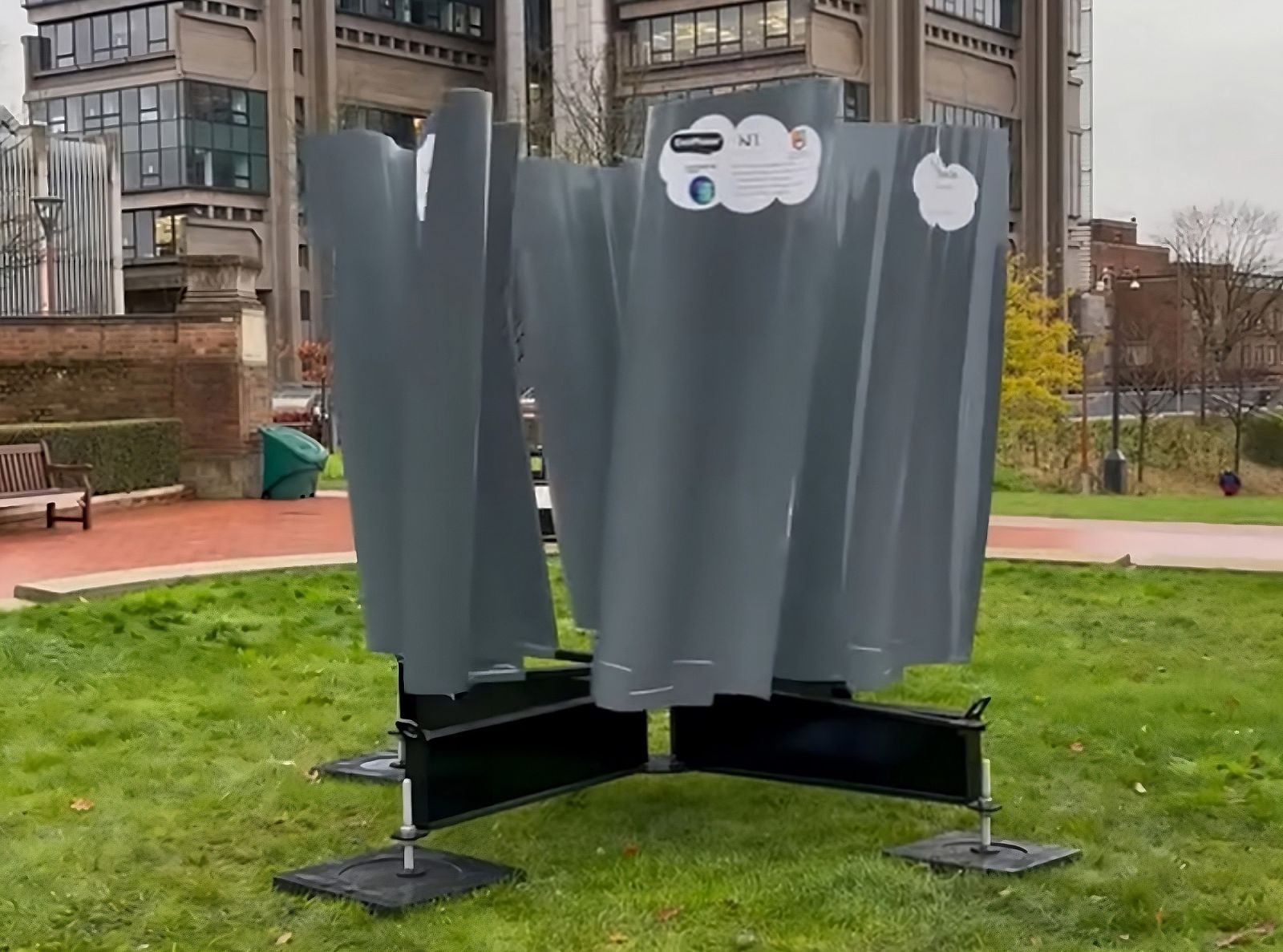AI and natural evolution combined to design this urban wind turbine 7 times more efficient 🌪️
Published by Cédric,
Article by: Cédric DEPOND
Source: University of Birmingham
Other Languages: FR, DE, ES, PT
Article by: Cédric DEPOND
Source: University of Birmingham
Other Languages: FR, DE, ES, PT
Follow us on Google News (click on ☆)

Enter the Birmingham Blade, entirely designed by AI, which is revolutionizing how we think about renewable energy in urban environments. Its compact and lightweight blades, designed for city rooftops, effectively capture low wind speeds while managing turbulence.
Behind this achievement are EvoPhase, experts in AI-assisted design, and Kwik Fab, specialists in precision manufacturing. Their approach is inspired by natural evolution: over 2,000 AI-generated designs were optimized in mere weeks, a process that would have traditionally taken years.
The secret lies in the blade geometry. Using machine learning algorithms, the angle and aerodynamic profile of the blades were refined to maximize energy efficiency in urban settings. The result: an efficiency seven times greater than conventional turbines under similar conditions.
The weak and inconsistent winds of Birmingham, previously deemed unsuitable for wind power generation, have now become a viable resource. Indeed, with an average speed of 3.6 m/s (about 8 mph), these air currents were insufficient for conventional models, which require at least 10 m/s (about 22.4 mph).
A prototype of the Birmingham Blade is already undergoing testing on the city's rooftops. Its performance under real-world conditions will be monitored over six months before being commercially released, scheduled for late 2025. The goal: to make renewable energy accessible within densely populated urban areas.
In addition to its energy efficiency, this innovation stands out for its low noise impact, a significant advantage for urban integration. Initial projections suggest rapid adoption by individuals, businesses, and municipalities looking to reduce their carbon footprint.
The success of the project opens up possibilities for other cities. Adaptations are already underway for Edinburgh, where weather conditions differ from those of Birmingham.
Beyond renewable energy, the methodology developed by EvoPhase is being applied to other industries, such as pharmaceuticals and food production. This is further evidence that AI can amplify, if not surpass, the boundaries of human design.